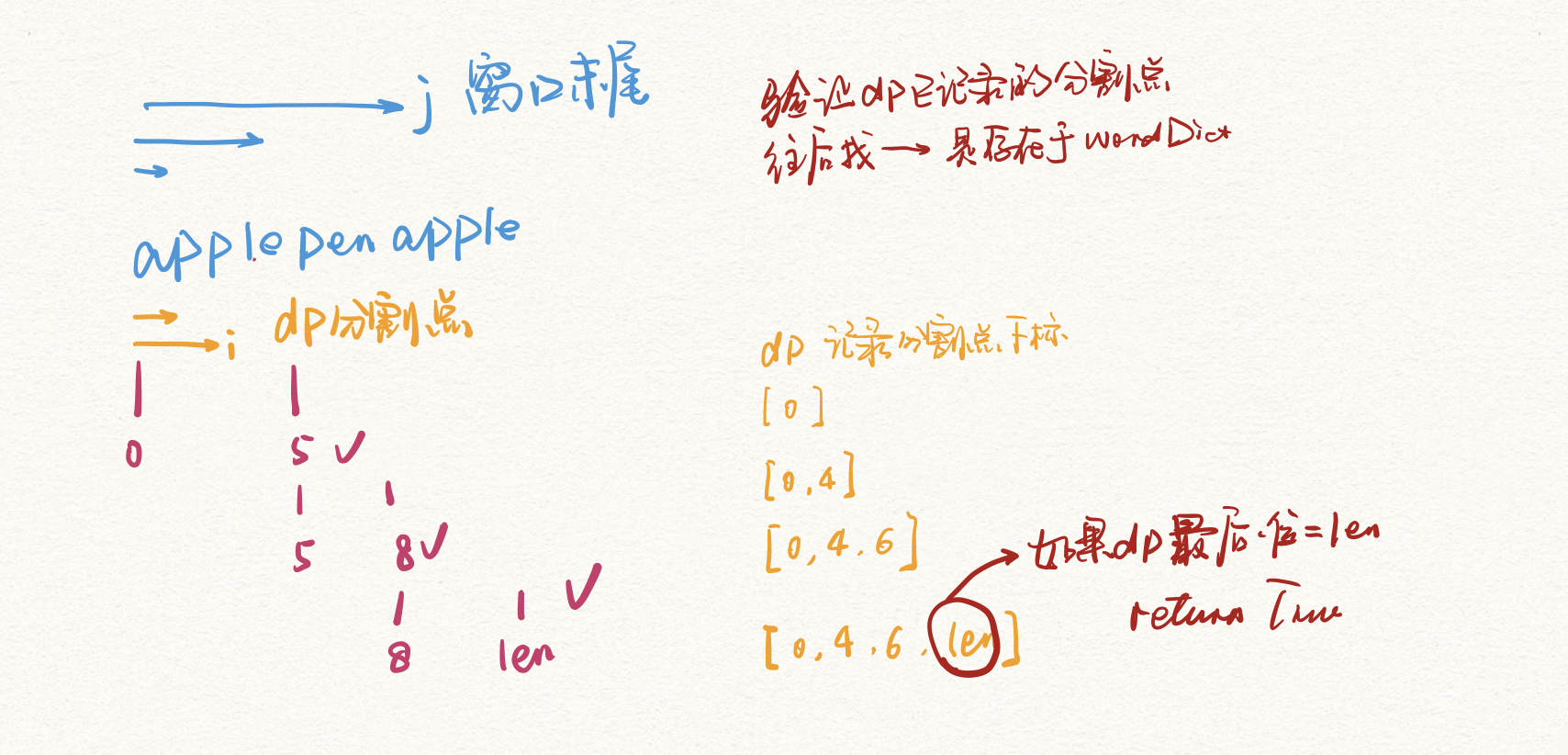139-Word Break
100-Same Tree | Links:
题意
Given a non-empty string s and a dictionary wordDict containing a list of non-empty words, determine if s can be segmented into a space-separated sequence of one or more dictionary words. Note:
- The same word in the dictionary may be reused multiple times in the segmentation.
- You may assume the dictionary does not contain duplicate words.
Example 1:
Input: s = "leetcode", wordDict = ["leet", "code"]
Output: true
Explanation: Return true because "leetcode" can be segmented as "leet code".
Example 2:
Input: s = "applepenapple", wordDict = ["apple", "pen"]
Output: true
Explanation: Return true because "applepenapple" can be segmented as "apple pen apple".
Note that you are allowed to reuse a dictionary word.
Example 3:
Input: s = "catsandog", wordDict = ["cats", "dog", "sand", "and", "cat"]
Output: false
思路
- 动态规划
- dp记录找到的分割点
- 以每一个位置为终点,以dp记录的分割点为起点 -> 窗口找word是否存在于wordDict

class Solution(object):
def wordBreak(self, s, wordDict):
"""
:type s: str
:type wordDict: List[str]
:rtype: bool
"""
dp = [0]
for j in range(1,len(s)+1): #滑动窗口末尾 需要走到最后一个字符
for i in dp:
if s[i:j] in wordDict:
dp.append(j)
break # 不再往后找,当前分割点为起点往后找起
return dp[-1]==len(s)